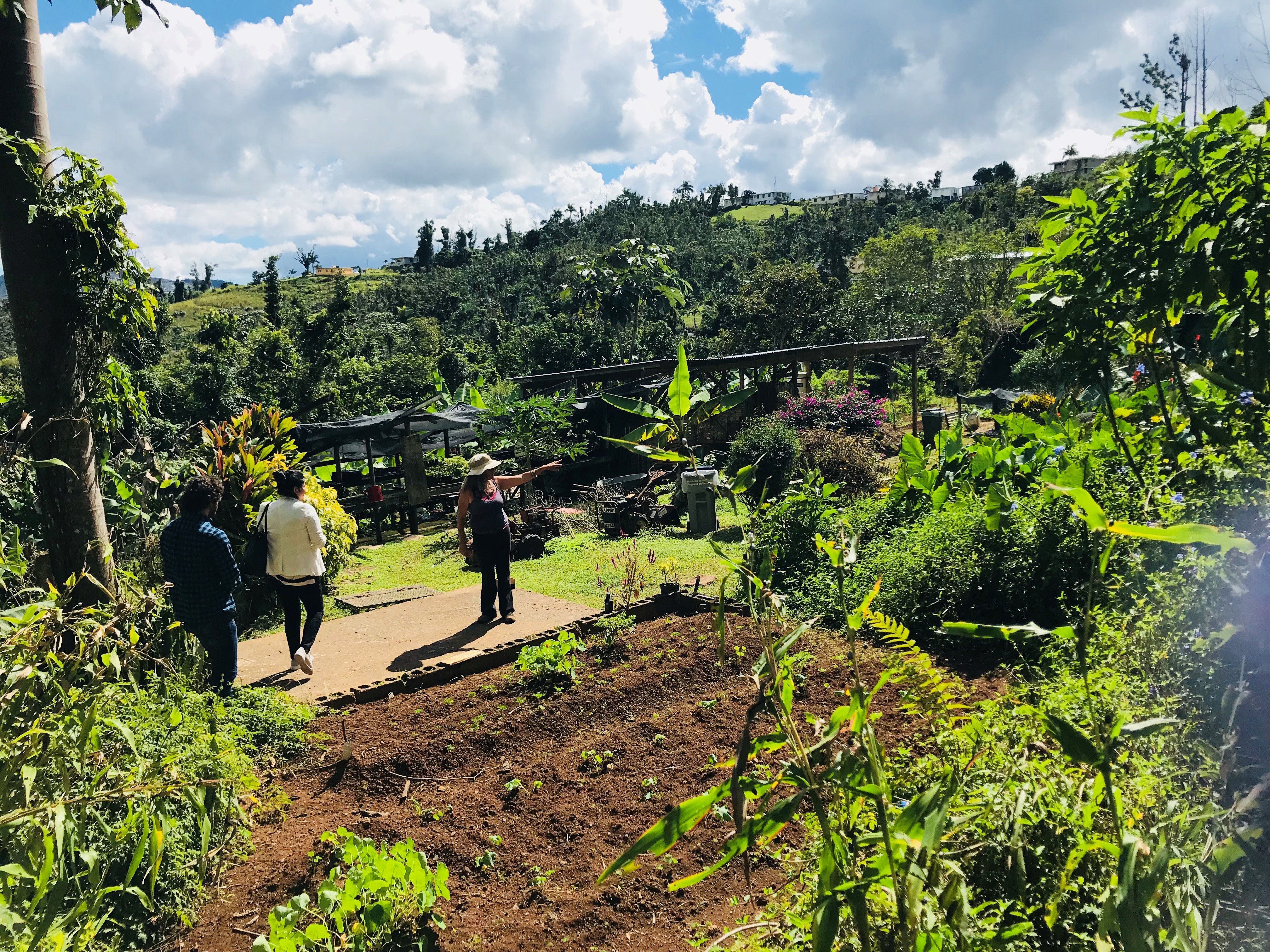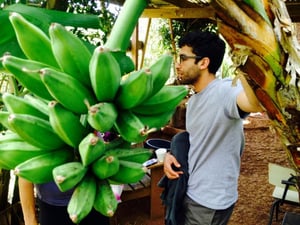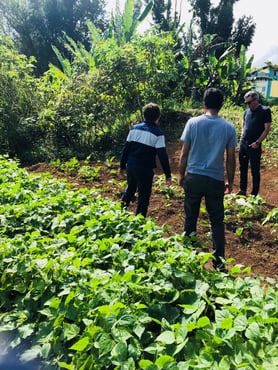Part 2 - CIPA Infrastructure Practicum Course: Visit to the S.U. Botijas School

Note: This is Part 2 of a series focused on the Winter 2019 CIPA course, PADM 5757 - Infrastructure Management and Finance Practicum, which took students to do field work in Puerto Rico. Elisabeth Lembo was one of these students and writes about her experiences.
The goal for the course was for students to learn about the current state of broadband internet in Puerto Rico and construct a two-fold product to support schools in their role as "anchor institutions." You can read Part 1 here.
At the close of our week, it was wonderful to have the opportunity to hold such powerful meetings with some very important, central stakeholders of our project including leaders of NGOs, the PRDE Secretary of Education, FEMA, and a senator in the Puerto Rican government (to name just a few!).
On Friday, January 18, our group traveled to the S.U Botijas School where we had the opportunity to meet with teacher and agronomist, Dalma Cartagena. During our afternoon with Dalma, she explained agro-farming and her mission to build up this practice in her school in the Municipality of Orocovis, as well as to spread the values of agro-farming to schools across Puerto Rico. Our afternoon with Dalma began at a local restaurant where we shared a meal of delicious pizzas with herbs from her students’ gardens. In Dalma’s words, "it should be a human right for people to understand how to grow food." She sees sustainable agriculture as a matter of social justice and explained to us that all of the materials for food are flourishing around community members everyday in Orocovis.
Dalma took over her school’s farm in the municipality of Orocovis roughly two decades ago as part of the Puerto Rican Department of Education’s agricultural education program. According to Dalma, agro-ecology teaches a combination of traditional farming methods that involves promoting resilience and protecting biodiversity, a rejection of toxins, and a commitment to building relationships between farmers and communities. During part of our pre-trip work, our group read about Dalma as she was featured Naomi Klein’s book: “The Battle for Paradise: Puerto Rico Takes on the Disaster Capitalists.” In the wake of Hurricane Maria, Dalma – who currently teaches students from third to eighth grade about sustainable farming – focused on the opportunities farming played to help her students overcome the trauma of Maria.
It was at this point that I really started to connect the work that Dalma does with one of our week’s goals: understanding schools’ roles as “anchor institutions” and their place in supporting resilience across Puerto Rico.
Puerto Rico is roughly 85 percent reliant on exported food: something many people consider to be unsustainable and unnecessary. After Maria, more than 80% of the island’s crops were completely wiped out. According to Dalma, when the storm hit – “We didn’t cry…we got right to work.” Immediately after Maria, when many places were without food, Dalma’s school received hundreds of community members who lined up for healthy food. Students who had graduated from the school in the past began walking to the school from the more urban areas to come help on the farm. In addition to providing food in the wake of a disaster, the farming at Dalma’s school has provided ongoing comfort to students. According to Dalma, “After Maria, we encourage the students to touch the plants and let the plants touch them because that’s a way of healing the pain and anger.”
 Following our conversations with Dalma, we traveled to her school and received a tour of the garden by one of her students, Richard. The entrance to the garden is met with a beautiful tree with a lot of hanging plantains. According to Dalma, this tree is symbolic as it serves as a reminder to students that life and food is all around and it is important to be grateful for the many resources.
Following our conversations with Dalma, we traveled to her school and received a tour of the garden by one of her students, Richard. The entrance to the garden is met with a beautiful tree with a lot of hanging plantains. According to Dalma, this tree is symbolic as it serves as a reminder to students that life and food is all around and it is important to be grateful for the many resources.
Richard gave us a thorough tour of the gardens and expressed excitement to show us the extra space where he and his peers hope to get some animals soon. Students outside spoke with excitement and enthusiasm about their role with working on the farm and seemed very excited about this class (which they take for about 40 minutes daily). I was filled with so much joy throughout this school visit as I saw students’ deep engagement, the pride and ownership they had in their work, and the meaningful impact they’re having on their community. This feeling was further confirmed during a meeting we had at the school with the Mayor of the Municipality of Orocovis, Jesús E. Colón Berlingeri. The Mayor made it clear that Dalma’s work played a deep role in the municipality’s resilience following the storm.
Our visit with Dalma and Richard involved a long discussion on the future of schools as “anchor institutions” in Puerto Rican communities, and the vast opportunities present in agro-farming to support schools. We finished by discussing our class’s major focus on the accessibility to high-speed internet and its role in supporting schools as anchor institutions. Dalma expressed her interest in having internet at the school as a means to show her students videos of various types of agro-farming techniques happening around the world. Dalma wants her students to know they are “not alone” in agro-farming as a means to support and better their schools and communities. Our entire group agreed this was an incredible final meeting for our week. (Note: Dalma continues to do wonderful work on agro-farming at her school through her affiliated organization, “Agriculture in Harmony with the Environment.”)
The field work portion of our course is now done and we have now returned to Cornell, where we are working on a deliverable for the Department of Education (DOE). Stay tuned for Part 3, the final blog in this series, where I will discuss the two specific products that we created: a survey for the DOE to send out to schools and a paper offering recommendations to the DOE on how schools can equip themselves as anchor institutions.
Elisabeth Theresa Lembo is a first-year CIPA Fellow (’20) from New Jersey concentrating in Public and Nonprofit Management.


